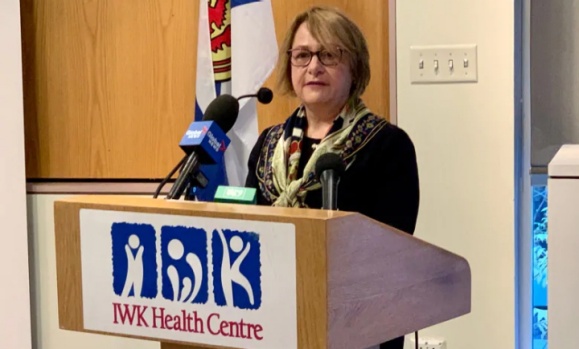Stories
» Go to news mainNova Scotia first to provide breast density to patients

A new software automatically records breast density on a woman's mammogram. The program, which was developed in Nova Scotia, is being used on every mammogram in the province and the information will now automatically be shared with women. (Patrick Callaghan/CBC).
It's a frightening statistic that far too many women in Nova Scotia are aware of: One in eight will be diagnosed with breast cancer in their lifetime.
But now the Nova Scotia health care system is aiming to give women new and potentially life-saving information on their breast health with every mammogram report.
Women in the province will now be able to learn whether they have dense breasts with the results of their mammogram as part of the Nova Scotia Breast Screening Program.
Breast density can affect a patient's risk of cancer and how easily their cancer can be detected.
"We have been very aware of breast density for many years as radiologists and we've recognized its importance," said Dr. Sian Iles, a radiologist who is also the medical adviser for the Nova Scotia Breast Screening Program.
"That's part of the reason why we started this research into breast density here, which led to the development of this software program."
Dr. Sian Iles is the medical adviser for the Nova Scotia Breast Screening Program. (Paul Palmeter/CBC)
The software used to measure breast density was developed by Densitas Inc. of Halifax.
The Nova Scotia Breast Screening Program at the IWK Health Centre helped oversee the development of the new process and its rollout to various regional facilities.
"It's my understanding that we are the first province to have a standardized approach and system that is able to do it province-wide," said Nova Scotia Health Minister Randy Delorey.
"That's what makes us, and this program, unique."
Recent News
- Dr. Abraham receives CAIR Award
- Thank you to everyone who joined us for the 30th anniversary Radiology Research Day on May 8th!
- Nova Scotia’s Lung Screening Program expanding to Cape Breton, eastern mainland
- Donor‑supported nuclear medicine technology attracts top medical talent to the QEII
- Building Critical Skills at the Dalhousie Physician Leadership Workshop for Women in Radiology
- CAR/CSTR Practice Guideline on CT Screening for Lung Cancer
- CAR/CSACI Practice Guidance for Contrast Media Hypersensitivity
- CAR Practice Guideline on Bone Mineral Densitometry Reporting: 2024 Update
